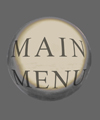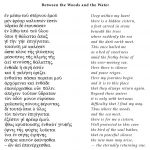From an anthropological point of view, as a sculptor my job is to make images that embody the truths for which the society I live in stands. Yet even thirty years ago there was precious little for which society stood and so I was compelled to set about finding truth for myself. After two years I had something that I could call truth and duly returned to art. Soon enough however I realised that the art world was going in a direction that I was not prepared to go. Turning to film, I made a number of short films only to find that the world of experimental film was going the same way. Turning to the written word, I wrote a novella and an experimental novel, which over the years I re-wrote extensively. Learning Ancient Greek not only helped me find my artistic style, it also lead to me I being re-confronted with the problems that I had addressed in my youth and thirty years down the line, I set about formulating my views into a coherent system. Apart from the two poems, the books introduced below are of around 300 pages. Given the road to nowhere that the publishing industry is intent on pursuing, over the coming years these projects will be broken down into shorter works which will then be published as Reloading Humanism Guides in A-5 format with a length of between 180 and 250 pages.






